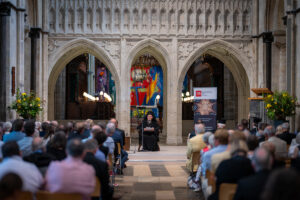The Iranian government targets converts to Christianity because it considers them to be apostate and threats to the state.
The U.S. State Department has classified Iran as a “country of particular concern” for “having engaged in or tolerated particularly severe violations of religious freedom.”
For previous ChristianPersecution.com coverage of Iran, see here.
“Christian converts given five-year sentences for ‘deviant propaganda,’” Article 18, April 11, 2022:
Three Christian converts have been sentenced to five years in prison for “engaging in propaganda and education of deviant beliefs contrary to the holy Sharia” and “connections with foreign leaders”.
Ahmad Sarparast, Morteza Mashoodkari, and Ayoob Poor-Rezazadeh were informed of the verdict on Saturday at Branch 2 of the Revolutionary Court in Rasht.
The three Christians, who were also fined 18 million tomans (around $750), were convicted under the amended Article 500 of Iran’s penal code following legal proceedings that were later heavily criticised by their lawyer, Iman Soleimani.
Mr Soleimani, who accompanied the Christians to court to receive the verdict, complained that his clients had been convicted only on the basis of the claims of intelligence agents of the Revolutionary Guards Corps (IRGC); that the judge, Mohammad Hossein Hosseinpour, had also taken on the role of accuser; and that there was no legal justification for the sentences, as his clients’ only “crime” had been to meet together for Christian prayer and worship.
A religious assembly, Mr Soleimani said, could not be considered an “action against the state”, while although Iran’s constitution forbids “inquisition” into a person’s beliefs, the judge’s very first question had been about their beliefs, and their confirmation of them drew an angry response. Their beliefs were later also referenced in the verdict.
The three Christians have decided to appeal against the sentences, despite being told by the judge that if they accepted them and “remained quiet”, their sentences would be reduced by one-quarter, and they may also be more favourably treated in prison, such as being eligible in time for furlough, conditional release, or freed to serve their sentences at home with an electronic tag.
However, the Christians maintain that they have done nothing wrong, and therefore are not willing to simply remain quiet and accept their lot.
Mr Soleimani, writing on Twitter, said: “I’ve been involved with this case from the beginning, and volumes of unspoken stories could be written regarding the shortcomings of how the arrest and preliminary investigations took place, the illegal proceedings in the Revolutionary Court in Rasht, and even the way my defendants were wrongfully condemned for someone else’s interview about them with Iran International.”
In another post, he wrote: “Unfortunately, in political and ‘security’ cases, the judges are under a lot of pressure from the arresting agents, and some independent judges have openly stated this in the presence of lawyers and defendants, and complained about this situation and the fact that they can also face charges themselves if they do not comply.”
Mr Soleimani added that the judge in Ahmad, Morteza and Ayoob’s case had even indicated to him that he was under pressure to give the Christians the maximum possible sentences….







